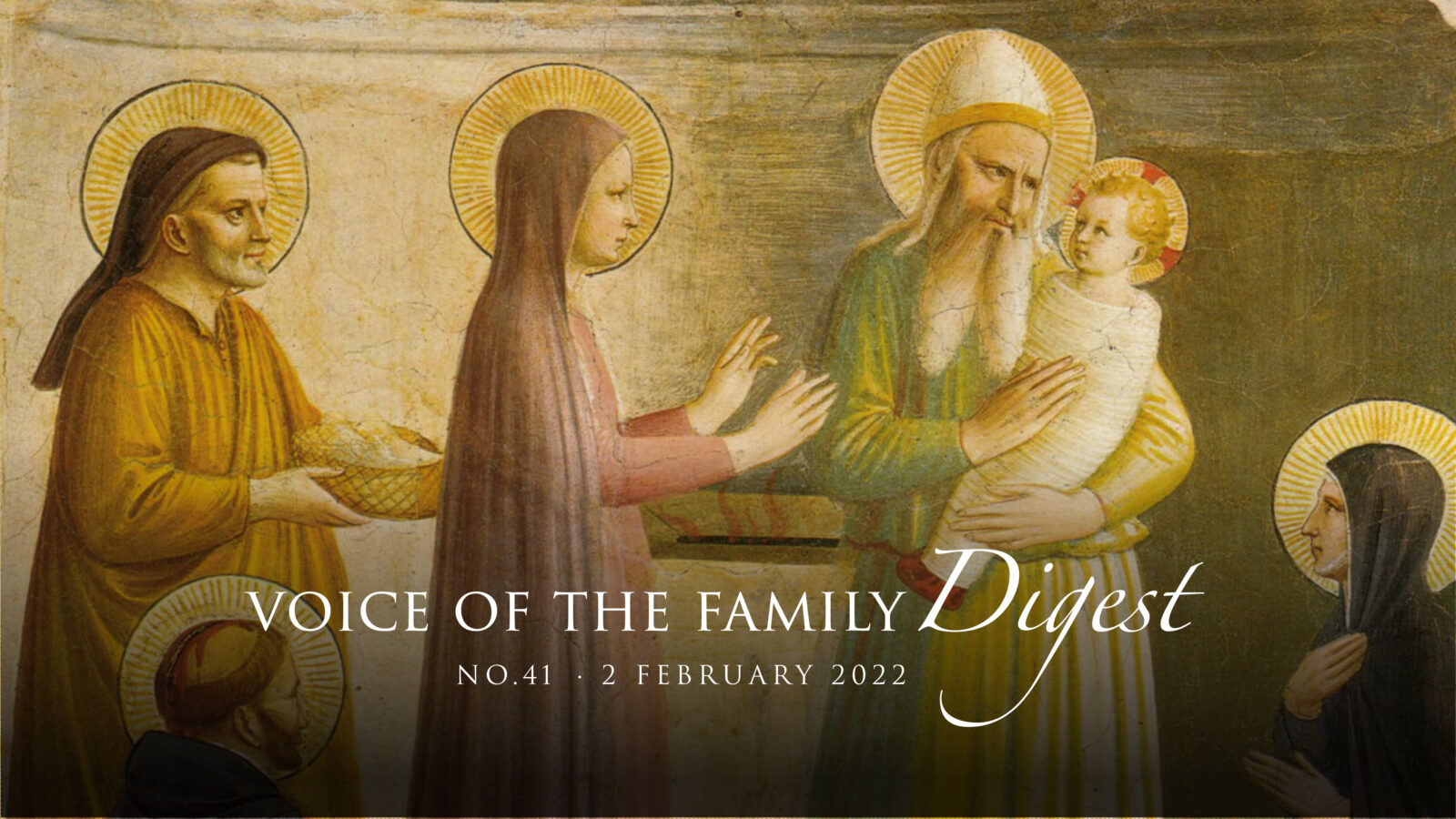Sermon on the Feast of Purification
2 February 2022

by a Dominican friar
Today is the fortieth day after Christmas, and so holy Church is celebrating another great feast: the feast which we call the Purification of Our Lady, also known as the Presentation of Our Lord, or in England often just as “Candlemas”.
What is special about the fortieth day after Christmas? It is the day when Our Lord Jesus Christ, the Light of the World, was brought forth into public. It’s true that He had already been manifested, first to the shepherds, then to the magi. But Mary and Joseph didn’t go to look for them. They came to see Him. Today, Our Lady and St Joseph bring the child into the holy city of Jerusalem, and into the temple itself, to present Him before the Most High.
Why did they do this? We can think about it both from the point of view of Our Lady and also from that of our Lord. From Our Lady’s point of view, there was in the Old Testament something called the law of purification. In fact, there were many laws about purification for different categories of people; but this one stated that on the fortieth day after the birth of a male child, the mother had to go to the temple for ritual purification. After this, she could once again take part in public prayers.
Now, Our Lady was not really subject to this law, because the conception and birth of Christ had been virginal and miraculous. But the miraculous character of this birth was not generally known. And so, lest people should think that she was neglecting a duty, Mary wished to comply with this law. We can also say that it appealed to her humility to follow the ordinary law of God’s people, and to conceal as far as possible the privileges that she had received.
Partly in honour of this, the custom has grown up among Christian mothers after being safely delivered of a child, to come to church for a special ceremony of blessing. Not that there is any question any more of a ritual purification: we don’t have laws of that kind under the gospel, just as we don’t have any distinction between clean and unclean foods. It recalls, rather, the humility of Our Lady. But even though Mary and Joseph went in their poverty to Jerusalem – and so they made the offering of the poor, two turtle doves – they surely did not go alone. They must have been accompanied by a multitude of angels, who knew that the prophecy of Malachias was being fulfilled: “The Lord will come to his temple, and who shall think of the day of his coming?” Who would have thought that the Lord would come to His temple in such a way? In memory of this, it is the custom in many places for the faithful to go on procession with burning candles, representing in some way the angels who accompanied Our Lady and St Joseph to Jerusalem.
But now, what about these events from the point of view, so to say, of Our Lord? St Paul tells us that, from the moment of His coming into the world, Christ offered Himself to His heavenly Father. How is it possible for a child lying in his mother’s arms to offer himself to God? Normally speaking, it is not: but this child is the eternal Son of the eternal Father. Even when He was lying in His mother’s arms, or in the manger, truly an infant, Jesus was already in what theologians call “the highest part of His soul”, looking upon the face of His Father, and offering Himself in love. It is part of the mystery of the Incarnation. And it was His Father’s will that today Christ should be offered and offer Himself publicly in the temple, and be recognised by the old priest Simeon and the old prophetess Anna, as a way of announcing to the whole people that their Messias had come at last.
Today, it seems to me, is a good day to pray for that people; the Jewish people. If God has preserved them intact for so many centuries without a homeland, it is not for no reason, but so that they may, like Simeon and Anna, be enlightened by the Holy Ghost to recognise their Saviour. And finally, it is a good day to pray for unbelievers everywhere; for God, also, has not made them for no reason. May the Child Who came today to His temple, enlighten both Jew and Gentile alike, by the splendour of His coming.
